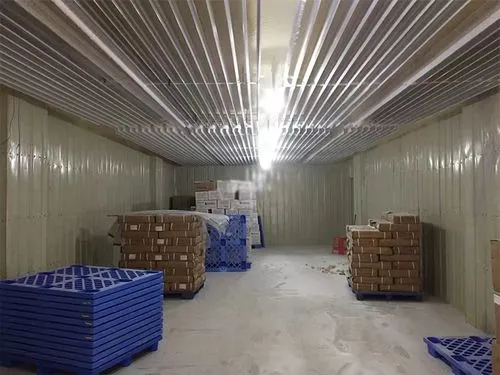Top Companies Specializing in Deli Refrigeration Equipment and Solutions for Your Business
The Importance of Deli Refrigeration Equipment for Food Safety and Quality
In the fast-paced world of delicatessens, the quality and safety of food are paramount. Deli refrigeration equipment plays a crucial role in maintaining the freshness of perishable products, ensuring that customers receive high-quality food every time they visit. As consumers become more health-conscious, the demand for fresh and safe food continues to rise, making reliable refrigeration equipment an indispensable part of any deli operation.
Understanding Deli Refrigeration Equipment
Deli refrigeration equipment encompasses a wide range of appliances specifically designed to store and preserve various food items. This equipment includes display cases, walk-in coolers, reach-in refrigerators, and blast chillers. Each piece of refrigeration equipment serves a unique function, allowing deli owners to display their products attractively while ensuring optimal storage conditions.
Display cases, for instance, are essential for showcasing meats, cheeses, and salads in a visually appealing way. These cases not only help in tempting customers but also maintain specific temperature settings to keep food safe. Walk-in coolers offer a larger storage space for bulk items and can accommodate the high demand for fresh ingredients. Reach-in refrigerators provide easy access to frequently used items, streamlining the workflow for deli staff. Blast chillers are vital for rapidly cooling cooked foods, preventing bacterial growth and extending shelf life.
Food Safety Regulations
Food safety regulations are stringent in the culinary world, particularly for delis that handle perishable products. The U.S. Food and Drug Administration (FDA) outlines mandatory temperature ranges for safe food storage. For instance, meats and poultry must be stored at or below 40°F (4°C) to minimize the risk of foodborne illnesses. Deli refrigeration equipment must be capable of consistently maintaining these temperatures to comply with health regulations and provide customers with safe products.
Moreover, regular maintenance of refrigeration equipment is essential to ensure optimal performance. Deli owners should schedule routine inspections and cleaning to prevent breakdowns that could compromise food safety. Investing in high-quality equipment and implementing appropriate maintenance practices minimizes the risk of food spoilage and helps to maintain a deli's reputation.
deli refrigeration equipment companies

Energy Efficiency and Sustainability
Another important aspect of deli refrigeration equipment is energy efficiency. With rising energy costs and increasing awareness of environmental sustainability, deli owners are encouraged to invest in energy-efficient refrigeration solutions. Modern refrigeration units come equipped with advanced technologies that optimize energy consumption while maintaining the necessary cooling temperatures.
Energy-efficient models not only reduce operational costs but also contribute to sustainability efforts. Choosing equipment with the Energy Star certification signifies that the unit meets strict energy efficiency guidelines set by the U.S. Environmental Protection Agency (EPA). By operating energy-efficient refrigeration equipment, delis can reduce their carbon footprint while also appealing to environmentally conscious consumers.
Selecting the Right Equipment
When choosing deli refrigeration equipment, several factors must be considered. The size of the deli, the type of products offered, and the overall layout will influence the choice of refrigeration solutions. It's essential to evaluate both the storage capacity and the display options to create a functional and enticing shopping experience.
Moreover, reliability and warranty options should be key considerations when selecting equipment from manufacturers. Investing in reputable brands with positive customer reviews can lead to long-term satisfaction and reduced maintenance issues.
Conclusion
In conclusion, deli refrigeration equipment is vital for ensuring food safety, preserving quality, and enhancing customer satisfaction. By understanding the importance of maintaining proper storage conditions, complying with food safety regulations, and investing in energy-efficient solutions, deli owners can create a successful business model that meets the demands of today’s health-conscious consumers. Ultimately, the right deli refrigeration equipment is not just an investment in machinery; it is an investment in the quality and safety of the food served, which is the foundation of any successful deli.
-
Transform Operations with Vacuum Freezer MachineNewsMay.14,2025
-
Enhance Business with Cold Room TechnologyNewsMay.14,2025
-
Vacuum Freezer Machine for Modern NeedsNewsMay.09,2025
-
Discover Our Comprehensive Cold Room SolutionsNewsMay.09,2025
-
Cold Room Solutions for Your BusinessNewsMay.08,2025
-
Advanced Vacuum Freezer MachineNewsMay.08,2025
















































































































